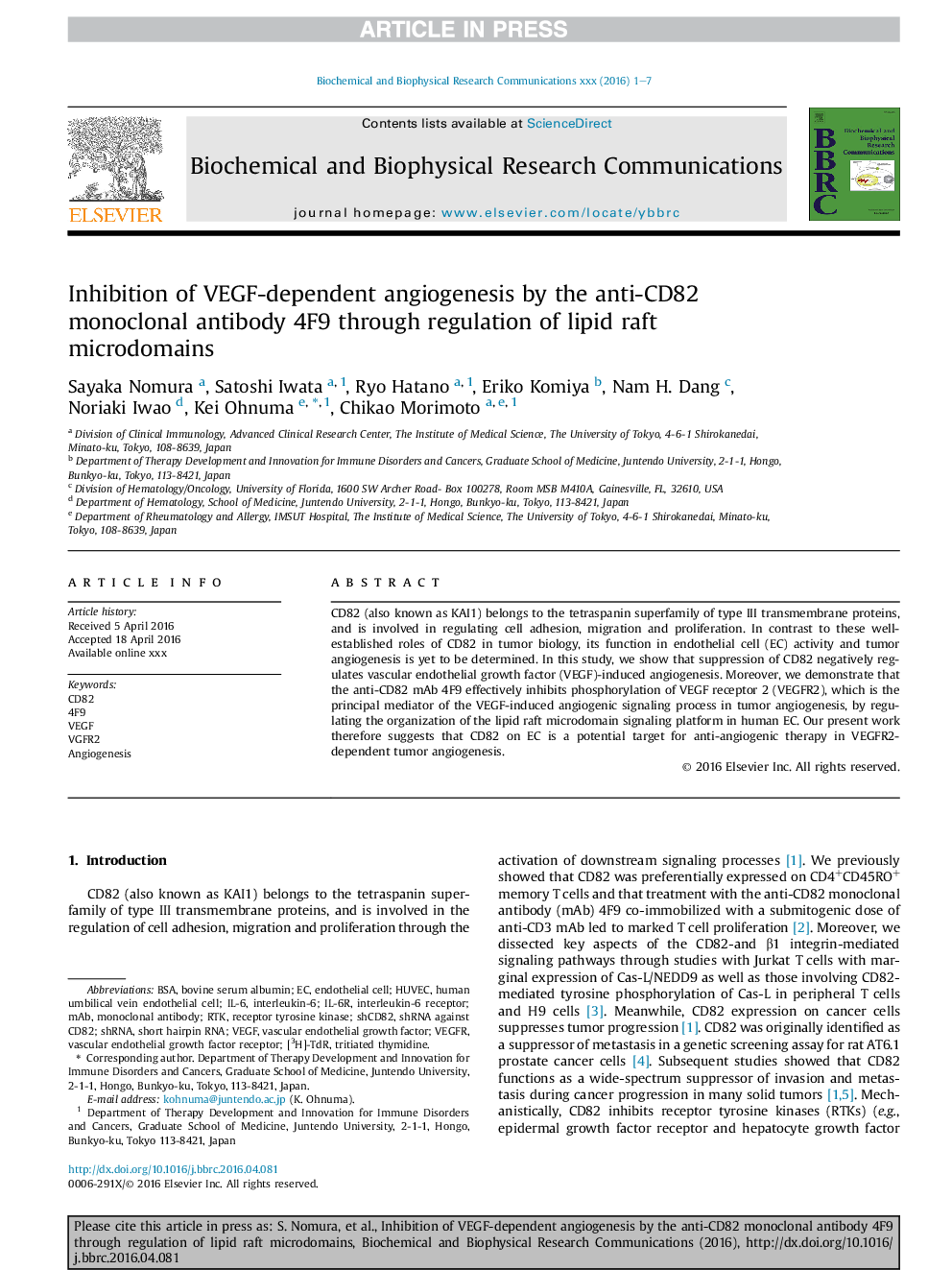| Article ID | Journal | Published Year | Pages | File Type |
|---|---|---|---|---|
| 10748550 | Biochemical and Biophysical Research Communications | 2016 | 7 Pages |
Abstract
CD82 (also known as KAI1) belongs to the tetraspanin superfamily of type III transmembrane proteins, and is involved in regulating cell adhesion, migration and proliferation. In contrast to these well-established roles of CD82 in tumor biology, its function in endothelial cell (EC) activity and tumor angiogenesis is yet to be determined. In this study, we show that suppression of CD82 negatively regulates vascular endothelial growth factor (VEGF)-induced angiogenesis. Moreover, we demonstrate that the anti-CD82 mAb 4F9 effectively inhibits phosphorylation of VEGF receptor 2 (VEGFR2), which is the principal mediator of the VEGF-induced angiogenic signaling process in tumor angiogenesis, by regulating the organization of the lipid raft microdomain signaling platform in human EC. Our present work therefore suggests that CD82 on EC is a potential target for anti-angiogenic therapy in VEGFR2-dependent tumor angiogenesis.
Keywords
[3H]-TdRIL-6CD82RTKmAbVEGFRIL-6RshRNAHUVECBSAshort hairpin RNAbovine serum albuminMonoclonal antibodyAngiogenesisinterleukin-6tritiated thymidineHuman umbilical vein endothelial cellEndothelial cellVascular endothelial growth factorVascular Endothelial Growth Factor (VEGF)Interleukin-6 receptorReceptor Tyrosine Kinasevascular endothelial growth factor receptor
Related Topics
Life Sciences
Biochemistry, Genetics and Molecular Biology
Biochemistry
Authors
Sayaka Nomura, Satoshi Iwata, Ryo Hatano, Eriko Komiya, Nam H. Dang, Noriaki Iwao, Kei Ohnuma, Chikao Morimoto,
